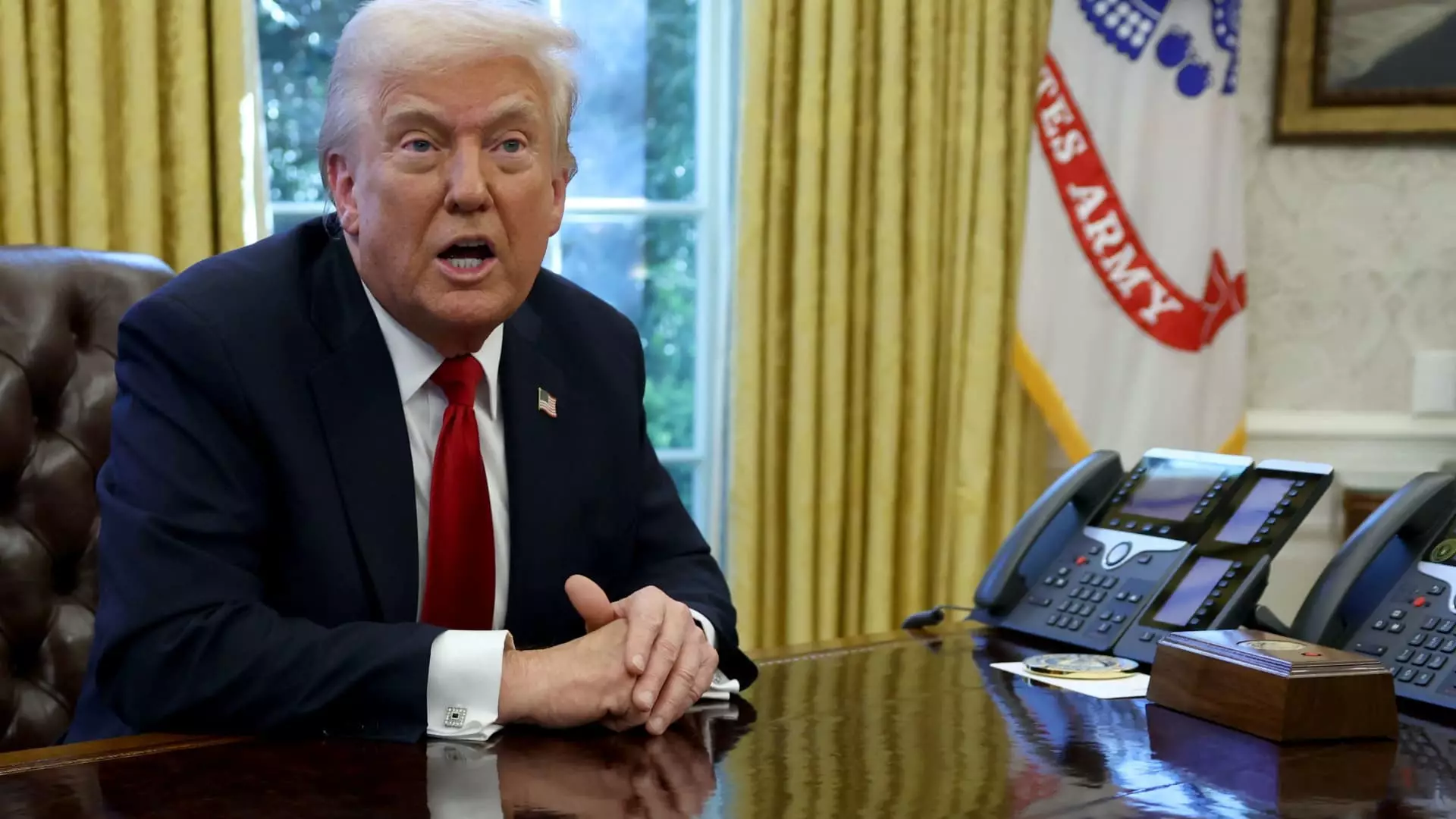The announcement from President Donald Trump regarding a proposed 25% tariff on all cars not made in the United States is a feat of significant complexity, highlighting a myriad of implications for the auto industry, particularly for domestic players like Tesla. This decision, positioned as an effort to bolster American manufacturing, raises critical questions about the practicality of such measures—especially in a globalized economy where auto supply chains transcend borders. Trump’s comments imply a protectionist stance that aims to stimulate job creation within the U.S., yet they also dot the landscape with potential harms, particularly to companies reliant on imported components.
The tariffs represent a double-edged sword. While they could potentially benefit manufacturers with domestic production capabilities, such as Tesla’s plants in Austin, Texas, and Fremont, California, it risks complicating relationships with international suppliers that provide essential automotive parts and advanced technologies. The assumption that a blanket tariff could safeguard American interests oversimplifies a tumultuous landscape dominated by interconnection and dependency on global supply chains.
Elon Musk: A Dual Role of Influence and Innovation
The intricate relationship between President Trump and Tesla CEO Elon Musk serves as another focal point in this unfolding narrative. Despite being a prominent advisor, Musk’s silence on the tariff issue raises eyebrows, particularly when Trump suggests a conflict of interest arising from their close ties. Musk not only has contributed substantially to Trump’s campaign finances—$290 million, to be exact—but he also leads an initiative aimed at reducing government inefficiencies. This dual role of Musk as an entrepreneur and a government advisor gives rise to questions about the motivations steering both his business ventures and his potential influence on public policy.
Musk’s known advocacy for innovation and sustainable energy solutions appears at odds with protectionist policies that could isolate American companies in the long run. The juxtaposition of his praises for Tesla’s attractive designs and performance against the backdrop of these tariffs is a striking one. It presents a scenario where Musk’s commitment to electric vehicles might also demand an agile response to the policy shifts that harm the very ecosystem he is invested in.
The Local vs. Global Supply Chain Dilemma
Tesla’s recent communications with the U.S. Trade Representative underscore a contradiction that many domestic manufacturers are grappling with today. The company stated that despite efforts to localize production and supply chains, many essential components—such as headlamps, brakes, and electrical systems—remain unattainable within the U.S. The realistic implications of Trump’s tariffs mean that whilst domestic production may temporarily buoy some companies, it could affect costs and availability for others.
This raises concerns for consumers who might ultimately bear the brunt of increased vehicle prices. Higher tariffs can lead to inflated costs, challenging Tesla’s competitive advantage in an evolving market within the electric vehicle sector, particularly against challengers increasingly populating the landscape. With additional companies entering the electric vehicle arena, the delicate balance between cost and innovation is at a crucial juncture.
The Market Reaction and Competitive Landscape
Following the announcement, market reactions hinted at the nervousness brewing among domestic automakers, with companies like Tesla, Ford, and General Motors witnessing a dip in their stock prices. This unease reveals the fragility of consumer confidence and investor sentiment in an environment rife with uncertainty. Competition is fiercer than ever, with new entrants continually emerging, especially concerning global giants like BYD from China, which remains a significant competitor in the battery electric vehicle domain.
As the automotive industry transitions toward electric vehicles, the potential for rapid shifts in market dynamics becomes a reality. Tariffs might yield short-term perceived benefits for certain industries, but they often miscalculate the interconnectedness of global supply chains. They risk inciting retaliation from foreign markets that could lead to a spiral of trade barriers that could ultimately sideline American firms.
While the intent behind Trump’s proposed tariffs attempts to safeguard American manufacturing, the implications are far-reaching and complex. The auto industry stands at a critical crossroads where domestic interests, global partnerships, and a rapidly evolving market must be harmonized for sustainable progress in manufacturing innovation.

